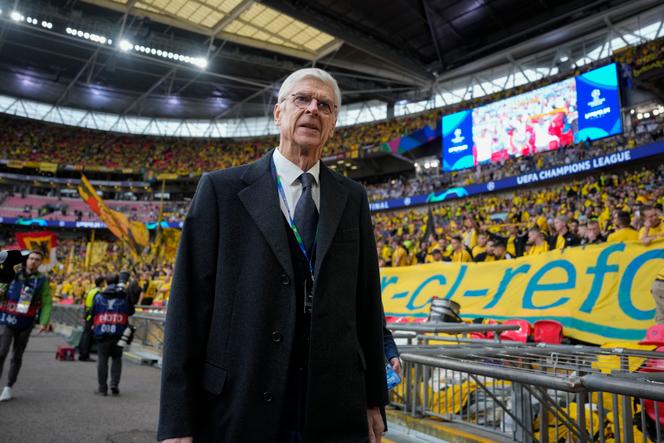
At the age of 74, Arsène Wenger continues to shape modern football. Six years after stepping down as Arsenal’s manager, he is now the director of global football development at FIFA and heads up the Talent Development Program, which aims to nurture young players around the world.
In between his travels, the Alsatian agreed to share with Le Monde his perspective on how football has evolved over the last 40 years, since the French team’s victory at Euro 1984. The former central defender, who that year was about to begin his coaching career at Nancy, watched the final against Spain from the stands of the Parc des Princes. It was, in his view, a defining moment in the history of Les Bleus.
What do you remember about Euro 1984?
It’s a formidable memory. Euro 1984 came two years after the World Cup, which we had hoped to win because we had the team to do it [semi-final defeat to West Germany]. 1984 was the opportunity to play in the Euro at home and finally win a major tournament. At the same time, this Euro showcased Michel Platini’s immense talent, as he scored nine of the 13 goals [for France]: Three with his left foot, three with his right foot and three with his head.
What has this success changed for Les Bleus?
This victory took France’s virginity in terms of football. Before this success, there was an ingrained helplessness in the French team, because we’d never won anything. When we played Germany, we lost. We started winning, and suddenly, we saw ourselves differently in the mirror, and others saw us differently too.
What has been the biggest development in football over the last 40 years?
The professionalization of players’ physical preparation. Football is a magical balance between physicality, technique and tactical intelligence. This balance is very important. However, in recent years, the development has been mainly physical. The player has become a football athlete, who is ready earlier and finishes later. Young players start at 15 in big clubs, like Lamine Yamal at FC Barcelona. And careers now end at 38, whereas they used to end around 32.
What has been the biggest change for the French team?
It is that it is mostly made up of players who play abroad. France has become the world’s largest exporter of footballers, thanks to its youth academies. Over the last five years, it has exported 283 players, compared with 84 for Brazil, which used to be well ahead. There are French players everywhere. France has understood that being a footballer is a profession that needs early preparation, so it has streamlined the education and scouting of young players. Today, every talented player has a chance, because the country is very well organized in terms of facilities.
You have 68.91% of this article left to read. The rest is for subscribers only.